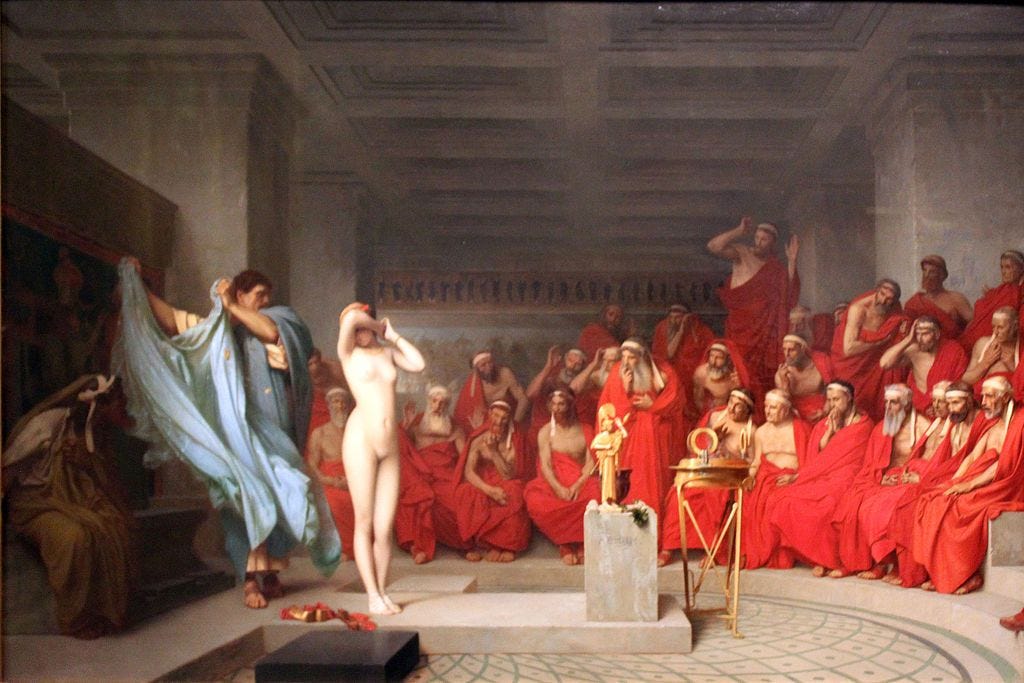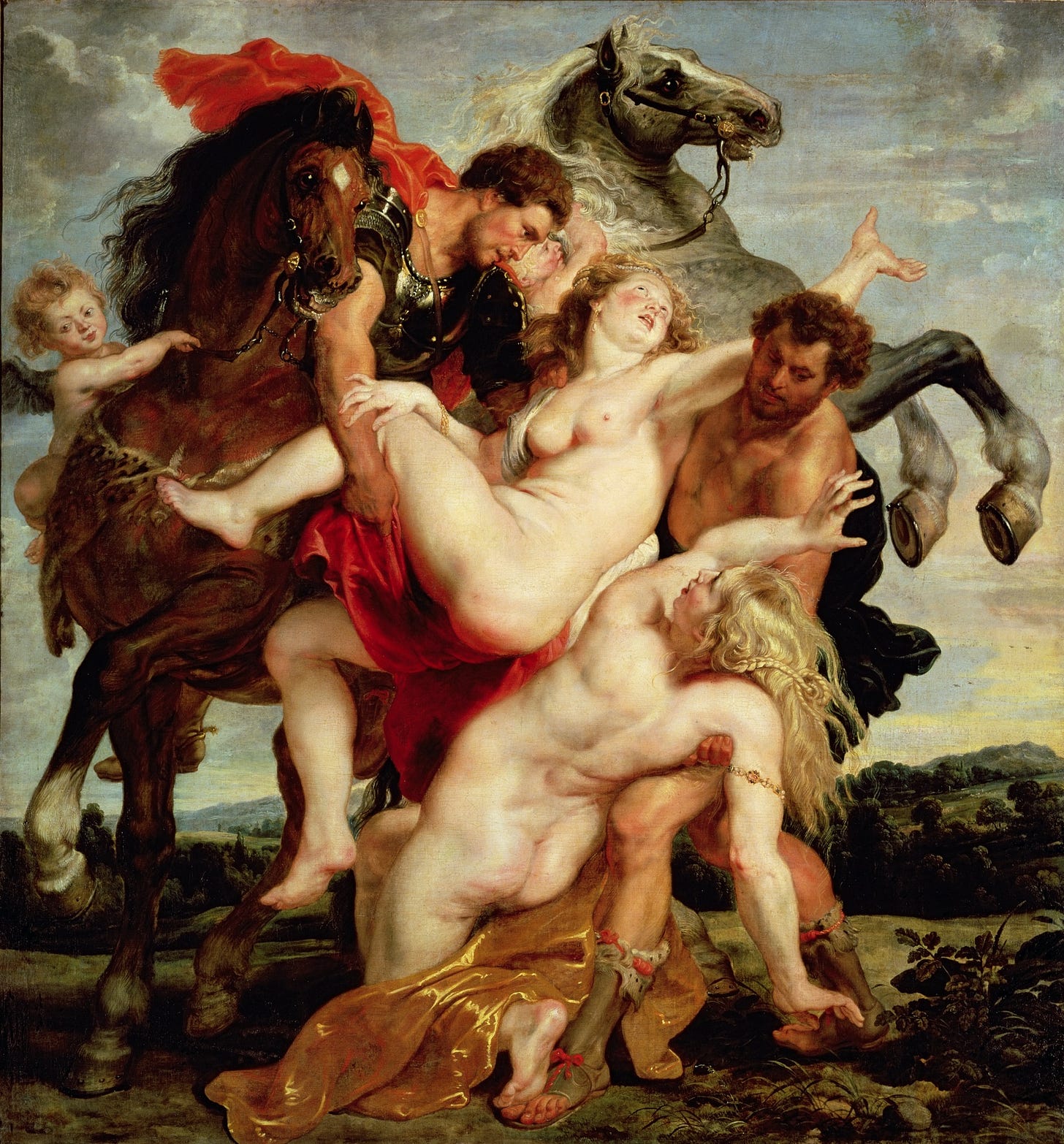“The European philosophical tradition consists of a series of footnotes to Plato.”
And the modern philosophical tradition consists of a series of attacks on Socrates, or a great defense. Hamann and Nietzsche begin from similar points, and respond to the crisis of Socrates as the philosophical tension of our time. In their style and method we can see a unity, but also a deeper conflict which reveals some of the hidden paths of modern thought. Nietzsche’s attack on Socrates is, of course, much better known. However, Hamann’s work should be considered as a defense – and being one of the greatest works of philosophy it is worth studying in its own right.
How did Hamann and Nietzsche respond to Socrates differently? James O’Flaherty’s work offers an excellent comparison, it forms the basis of the ideas here. First, it should be noted that Hamann ands Nietzsche share similarites: not only do they set aside knowledge as the fundamental question of man, they present alternative forms or types of reasoning; and their philosophies are the ground of metaphysical eros, the orgiasmus.
“To understand truly one must descend to the depths of the orgies of Bacchus and Ceres.”
Hamann’s Bacchus is grounded in the Christian myth, in language as creation. Nietzsche’s Dionysianism is less certain, a force or technique which accompanies sacrificial romanticism.
Here they diverge. Hamann refers to Alcibiades who compared his parables to sacred images as in the small case that men carried around, with a satyr image on the outside, and the god hidden within. Nietzsche sees Socrates as the antithesis of orgiasmus, he is the pure rationalist. He relies on the sickness of logic and dialectic, an ‘inadequate aesthetics’ and misfortune.
“For Hamann, rationalism involves the castration or mutilation of knowledge, hence it is characterized by a subordinate relationship to intuitive knowledge.”“For Nietzsche, on the other hand, rationalism is not an aberrant function of the mind, but a power coordinate with “Orgiasmus,” and is in fact able to drive the latter from the world stage for long periods of time.”1
Hamann is an epistemological monist. Nietzsche an epistemological dualist. Nietzsche wields a weapon forged by his enemy, and which he seeks to destroy. (One of the contradictions he is unaware of.) Hamann wields his own struggle with religious faith and Hume’s philosophy.
Their faith: Hamann’s Christianity, which is vitalist, he does not fear the power in Dionysus, Prometheus. Nietzsche’s revived paganism, Dionysus, and Heretical Dionysus, Wagner and Anti-Wagner, Romanticism and Anti-Romanticism, Nihilism and Anti-Nihilism. Titanism, Fallen Christ.
‘Both Hamann and Nietzsche reject the Winckelmannian notion of the noble and idyllic Hellenes.’
There is a rigidity in Nietzsche, he demands the formalism of tragedy, its central technique, which prevents him from adopting a true aesthetic philosophy. Hamann as incomprehensible.
For Hamann, maieutics (the Socratic method), is the humility of an old woman who cares for the next generation of children. Truth is allowed to find itself, free itself. Nietzsche does not, or cannot, consider maieutics.
Nietzsche sees in Socratic ignorance excessive rationalism. “The Nietzschean Socrates has such complete confidence in the power of thought that he believes all that is amiss with human life and even the universe itself may be recognized and corrected by means of reason.”
Hamann cannot see any hubris in Socrates, he does not commit the robbery, the evil of assaulting the gods, capturing their hidden essence. Nietzsche’s Socrates is committed to the certainty of such truths, the plebeian arrogance which wants to lay its hands on the gods. Note here that Nietzsche’s attack becomes central to his own method and hubris. That Hamann has not been read, and Socrates has further had his dignity stripped by accusations of rationalism perhaps reveals a small part of the truth.
“Nietzsche’s inconsistent view of Socratism, that it is a powerful cultural force and at the same time helpless before the vital forces of life, is built into his portrait of Socrates. He seems to be unaware of his inconsistency”
Hamann understood the Sophists to be the great enemies of Socrates, extolling the complete opposite philosophy. Nietzsche says that Socrates is the ultimate sophist.
The simple harshness of Socrates reflected the beam in the eyes of the Sophists. He revealed them as criminals of the nomos of Athens, swindlers in a card game who have no skill in a true game of chance and wit. This is one of the most brilliant passages in Hamann’s work:
Let us suppose that we invite someone we do not know to a card game. If he answered us, I don’t play; we would have to interpret this either as meaning he did not know how to play the game, or had an aversion to it, which might be for economic, moral, or other reasons. But suppose that an honest man, of whom it was known that he possessed the greatest skill in the game, and was as well-versed in the rules as in the art of cheating, but could never undertake and enjoy a game except as an innocent pastime, was in the company of refined deceivers, who passed as good players but to whom he was more than equal, pressed him to make up a party with them. If he said: I don’t play, then we, like him, would have to look these people he addressed in the face, and could fill out his words like this: ‘I don’t play, that is, with such as you are, who break the rules of the game and rob it of luck. If you are offering a game; then our mutual agreement is to recognize the obstinacy of chance as the master, but if you call the cunning of your quick finger ‘chance’, then I must accept it as such, if I want, or take the risk of insulting you, or choose the shame of doing as you do. Had you proposed that I test myself against you to see which of us was the best swindler at cards, I would have answered differently, and perhaps would have wanted to play with you, to show you that you have learned to produce cards as badly as you know how artfully to play the ones that you are given.’ In these rough tones we can interpret Socrates’ meaning, when he said to the sophists, the scholars of his time: I know nothing. Therefore, these words were a thorn in their eyes and a scourge on their backs. All Socrates’ ideas, that were nothing but the expectorations and secretions of his ignorance, seemed as fearful to them as the hair on the head of the Medusa, the navel of the Aegis.
The Hamannian Socrates is irrational in his aesthetics. His idea of beauty is not uniform, not based in perfection and symmetry. For Nietzsche, Socrates is ugliness and could never know beauty.
And a final thought, Nietzsche’s idea of truth is contradicted in two metaphors. Where he compares truth to life and woman he sees only what is interwoven, the lining, the golden magic at the edges – possibilities, and not what it is at its core.2
James O’Flaherty. Much of this essay is from my notes on his work.
“Whenever truth is unveiled, the ecstatic eyes of the artist remain fixed on what still remains veiled, even after the unveiling; similarly, theoretical man enjoys and satisfies himself with the discarded veil, and his desire finds its highest goal in a process of unveiling which he achieves by his own efforts and which is always successful.”
Hamann’s image is worth considering here as well:
“The truth did not want to be approached by thieves, she wore dress upon dress, so that one doubted to find her body. How frightened they were when they had their way, daunted. The spectre, the truth, before them.”






